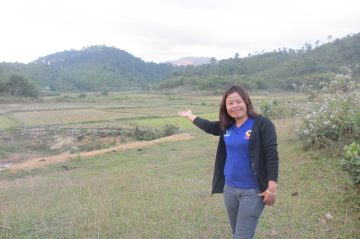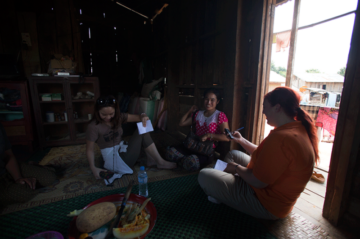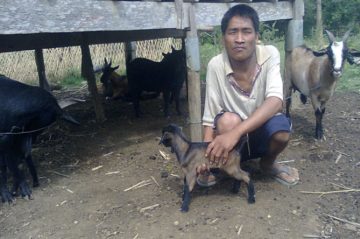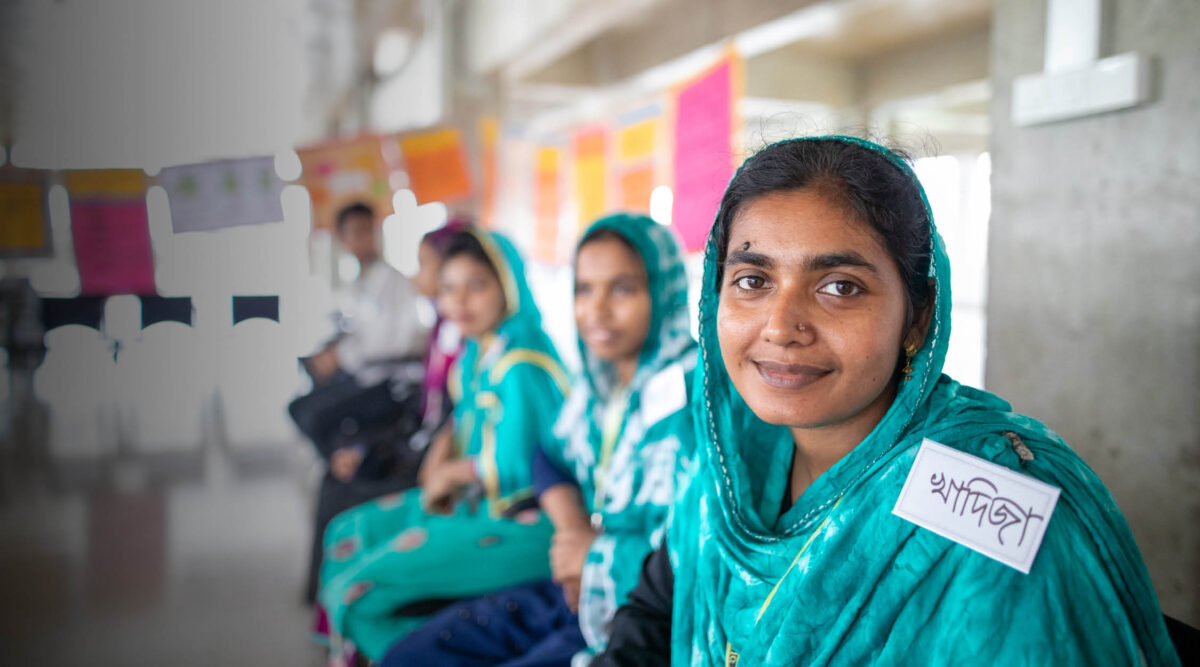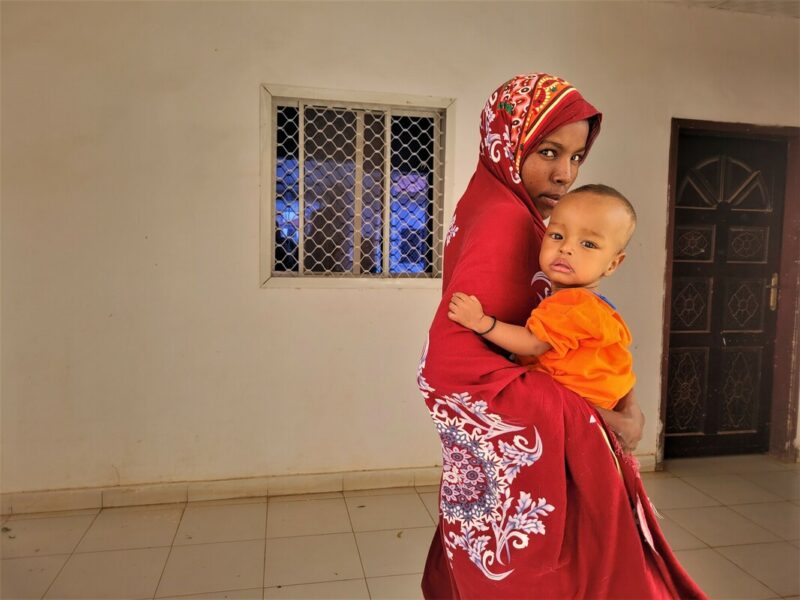Women from ethnic minorities bear the brunt of poverty in Laos. Donate now.
Women from ethnic minorities bear the brunt of poverty in Laos. Donate now.
Laos is one of the most ethnically diverse countries in South-East Asia.
In rural and remote areas, 65% of the population is made up of more than one hundred ethnic groups. While achievements in economic growth and poverty reduction in Laos have been impressive in recent years, rural poverty remains a major challenge. The majority of people in Laos who live in remote rural areas belong to diverse ethnic groups and, although complex, there is a strong link between poverty and ethnicity.
Women in Lao ethnic communities have limited income earning potential due to gender norms that focus on household and reproductive roles. They also experience heavy workloads and lack of mobility.
CARE is working closely with some of the most affected marginalised urban women and remote ethnic women, to help provide tools for sustainable change.
Fast Facts
Population: 7.12 million (July 2017 est.)
Life expectancy: 64.6 years (62.6 years male, 66.7 years female) (2017 est.)
Infant mortality: 49.9 deaths/1,000 live births (2017 est.)
Under-5 mortality*: 67 deaths/1,000 live births (2015 est.)
Maternal mortality: 197 deaths/100,000 live births (2015 est.)
Adult literacy rate: 79.9% (87.1% male, 72.8% female) (2015 est.)
Access to improved drinking water: 75.7% (85.6% urban, 69.4% rural)
Access to improved sanitation: 70.9% (94.5% urban, 56% rural)
Labour force participation rate^: 79% male, 76% female (2014 est.)
Percentage of seats held by women in national parliament^: 27.5%
GDP per capita: $7,400 (2017 est.)
Source: CIA World Factbook, *UNICEF, ^World Bank
Improving access to income
CARE has launched initiatives to enhance women’s income earning by increasing their ability to produce and sell agricultural, garden and livestock produce. This has meant building women’s technical knowledge of agriculture, gardening and livestock, while building commercial awareness of the potential of cash crops, selling of surplus food and selling non-timber forest products.
The inclusion of women in training initiatives such as study visits and courses, while also giving them roles in cascading training through the village, has increased women’s status in the villages and their perceived value within the family. Livestock banks have been an effective way of increasing women’s access to food production and income earning potential, as they enable shared ownership, responsibility and benefit for livestock.
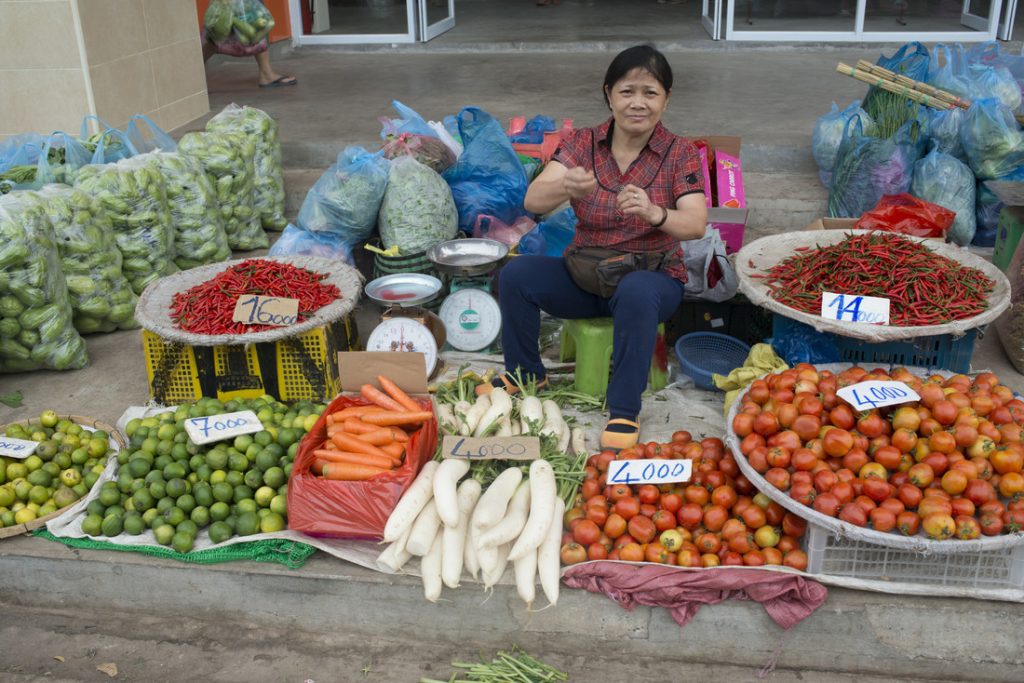
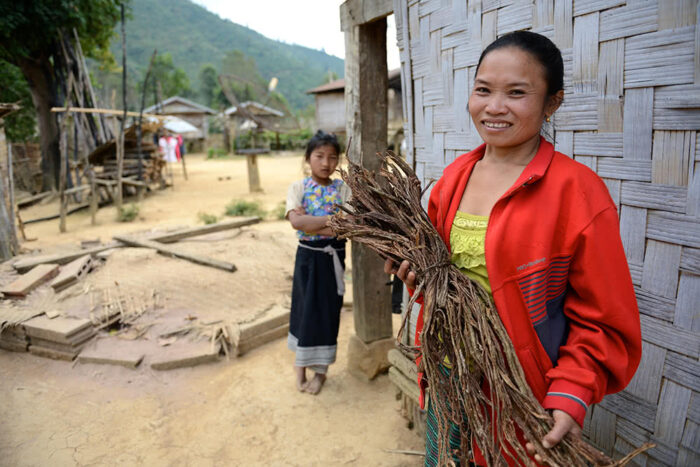
Farming skills and resources
More than 70% of Laos’ population depends on farming to make its living. That means they work on their farms every day – but many still struggle to find a market for their coffee and, when they do, they don’t always make enough to provide for their family.
Coffee growing is not only a valuable source of income, but it’s also crucial in terms of improving food security. By diversifying farming practices, families will also develop skills to plant and grow other crops and improve their overall nutrition.
With their increased income and improved farming techniques, women can lift themselves out of poverty, families will have better nutrition and their children will have brighter futures.
Read more about the Boosting Coffee Production project.
Safe workplaces, safe communities
A growing number of women and girls are migrating from rural areas of Laos to the capital Vientiane in search of work.
Without information and social networks, women are especially vulnerable to risks such as dangerous work or sexual exploitation. Forty-five per cent of women in urban areas work in the informal sector and often lack labour protections or social benefits.
CARE is working with these women to help provide them with access to services and safe employment options. Along with training in practical vocational skills, we’re supporting women – particularly those in the garment, hospitality and sex industries – to establish women’s groups and networks so they can better understand their rights. We’re also training police, health service providers and employers in how to prevent gender-based violence and introduce legal and labour protections to help prevent discrimination.
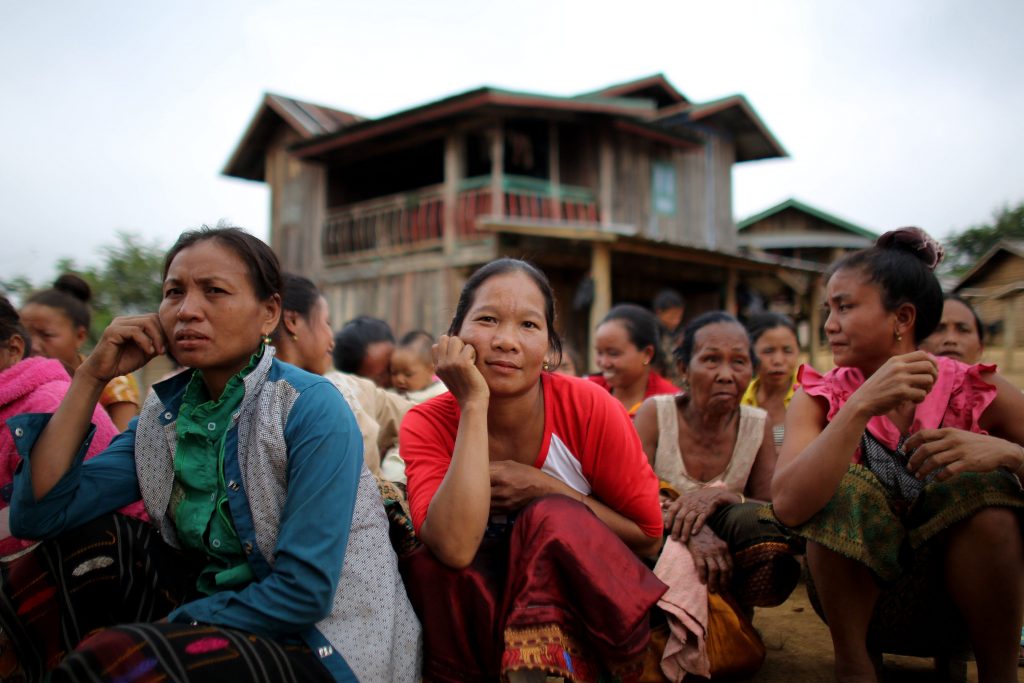
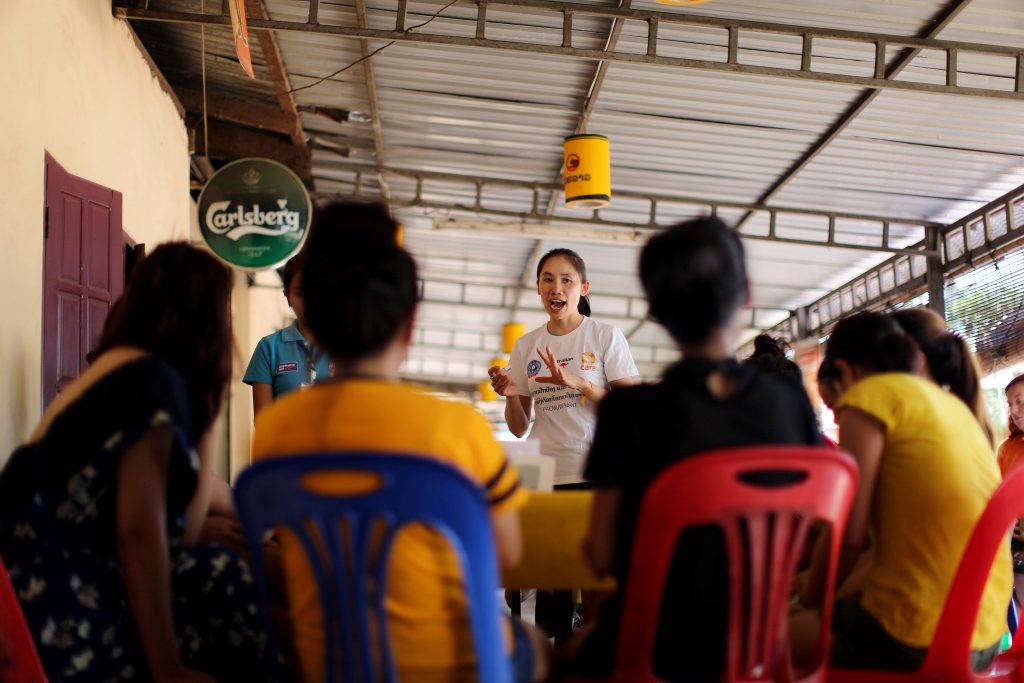
Women are speaking up
Dak Den is a member of a woman irrigation group, where she manages all of the village volunteers to build and maintain the irrigation system.
“This has resulted in much higher yields in the rice production and I am proud to be part of that. I am not nervous about being in this group, as you have no need to be afraid of anything if you want things to be better. We don’t want our lives to be like before. I am very happy. I would like things to get much better in the future. Other women feel the same. Women are much better than before as they can now express themselves in meetings.”
Dak Den is able to use the money she earns from selling coffee to send her children to school.
“I’ve paid for their school fees and materials to study housing engineering in Pakse. Some women also sent their daughters to study at the teachers’ school in Salavan Province.”
Donate now
Support our ongoing work to create a more equal world.
Your donation can help end extreme poverty and give people the means to build a better future for themselves in countries like Laos.
For those living in extreme poverty, your support brings education and training, healthcare and clean water, nutritious food, and new ways to earn an income. And in times of crisis, you help us deliver emergency relief. Please donate today.
Learn more about our ongoing impact in Laos:
– More CARE evaluation reports from Laos and other countries are available at CARE’s Electronic Evaluation Library.
Other resources and highlights
-
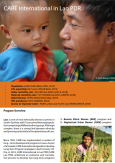 Download
DownloadCARE International in Lao
Since 1992, CARE has implemented a number of long-term development programs in Laos.
-
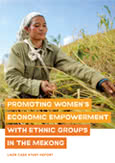 Download
DownloadPromoting Women’s Economic Empowerment: Laos Ex-Post Evaluation 3MB
Assessing the impact of CARE's work in the Laos region.
-
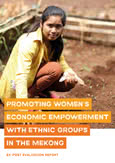 Download
DownloadPromoting Women’s Economic Empowerment: Ex-Post Evaluation Report 2MB
Assessing the impact of CARE's work in the Mekong region.
-
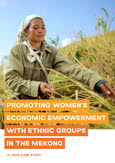 Download
DownloadPromoting Women’s Economic Empowerment: A Laos Case Study 2MB
Factsheet with learnings from our Women's Economic Empowerment program in Laos.
The on-going work we do in Laos is in partnership with these local organisations: Clinical Legal Education, Faculty of Law and Political Science, Comite de cooperation avec le Laos, Gender and Development Association, Land Information Working Group, Lao Disabled People Association, Lao Organic Promotion in Agriculture, Lao Positive Health Association, Rural Development Agency, Social Development Alliance Association, Sustainable Agriculture and Environment Development Association, and Vientiane Youth Centre.
Banner image ©Jeff Williams/CARE
